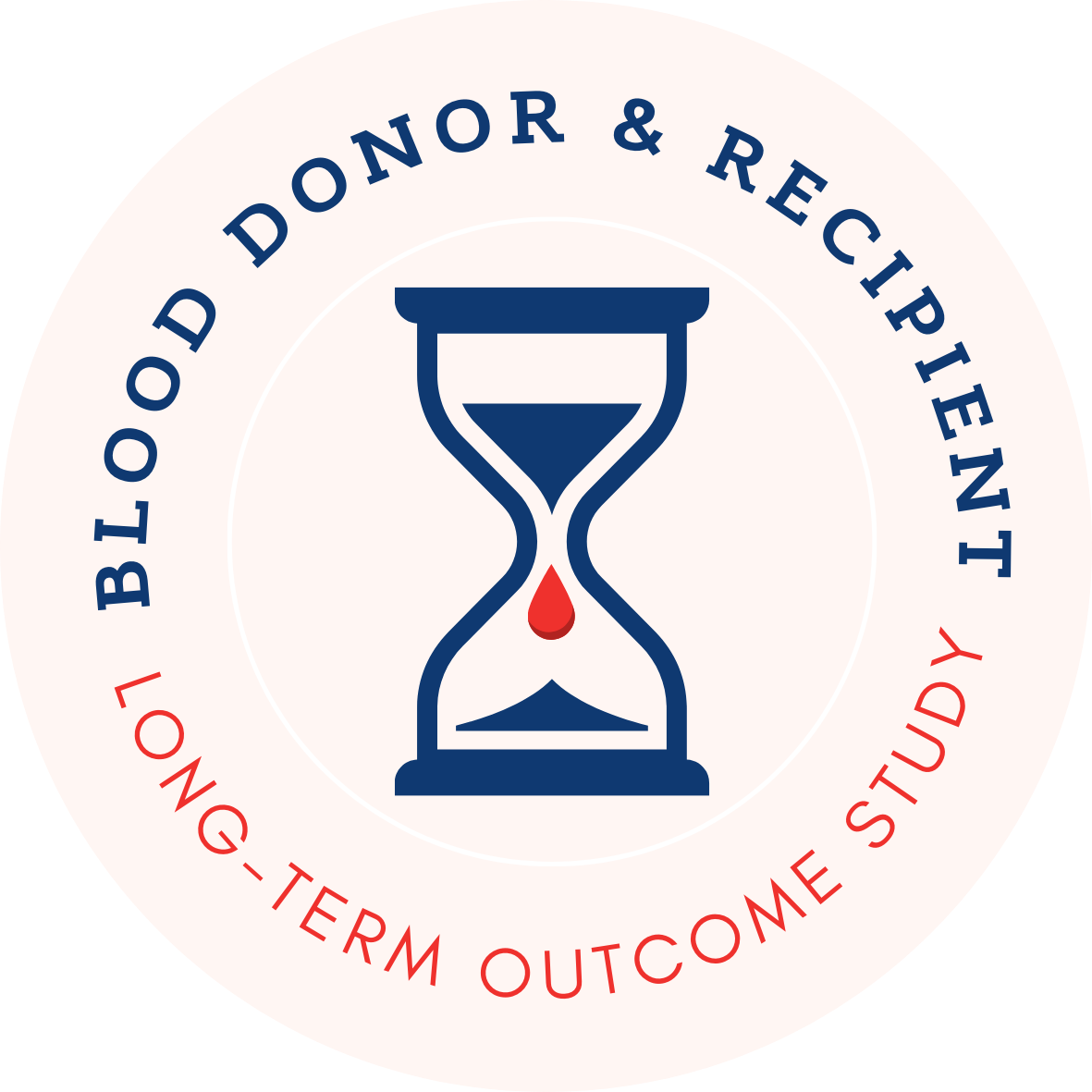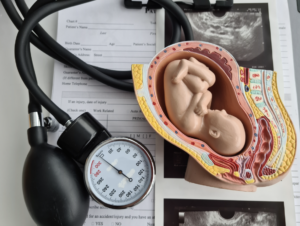
Deputy Study Director
Priv.-Doz. Dr. med. habil. Jan Kloka
Dr. Jan Kloka is an esteemed anaesthesiologist and clinical scientist at Frankfurt University Hospital. He completed his medical studies at the University of Würzburg in Bavaria. Dr. Kloka's research focuses on intensive care medicine, big-data analyses, and digital innovations in the healthcare sector. His work integrates advanced data analytics to enhance patient outcomes and drive forward the digital transformation of medical practices. Dr. Kloka's contributions are pivotal in the intersection of technology and healthcare, aiming to improve the efficiency and effectiveness of clinical care.
7 Years
-
August 2017
State Examination in Human Medicine
Julius-Maximilians-University Würzburg
-
October 2020
Administrative and scientific supervision at ENVISION
Horizon 2020 EU-funded project (6M €)
-
January 2021
Founder & leader of the Data Science Group Frankfurt
Interdisciplinary scientific working group at the Goethe University Frankfurt
-
February 2021
WAKWiN
Admission to the scientific working group for young scientists of the german society of anesthesiology and intensive care medicine (DGAI)
-
May 2021
Administrative and scientific supervision at COVend
Horizon Health 2021 EU-funded project (10 M €)
-
October 2025
Development and Deputy Study Director at LOS
Blood Donor & Recipient Long-Term Outcome Study
Recent Publications
Sci Rep. 2025.
Critical risks of haemoadsorption for COVID-19 patients and directions for future evaluations: a nationwide propensity score matched cohort study.
Haemoadsorption has been suggested as treatment adjunct for sepsis and septic shock, cardiac surgery, acute respiratory distress syndrome, and coronavirus disease 2019 (COVID-19). Randomised clinical trials did not provide conclusive evidence for benefits and even suggest risks in COVID-19 patients. Retrospective observational cohort study based on hospital remuneration data from all COVID-19 patients treated in intensive care units in Germany between 01/01/2020 and 12/31/2021. Regression modelling was performed for 1:1 propensity score matching of 2058 patients. Two-sided probability values for group comparisons and regression models with spline functions controlling for non-linear relationships and medically relevant interaction variables were calculated. In-hospital mortality of patients supported with haemoadsorption was significantly higher compared to matched control patients (74.6% vs. 70.3%, p = 0.0299). Haemoadsorption was associated with coagulopathy (68.0% vs. 54.9%, p < 0.0001), cardiac arrhythmia (49.2% vs. 44.2%, p = 0.0272), and cardiopulmonary resuscitation (CPR, 19.3% vs. 13.1%, p = 0.0002). Further, haemoadsorption increased the chance of death for COVID-19 patients without septic shock (odds ratio, OR [within a 95% confidence interval, CI]; 1.40 [1.05-1.86]) and did not improve survival of septic shock patients (1.19 [0.85-1.67]). Independent variables with a significant impact on mortality included the use of extracorporeal membrane oxygenation (ECMO, 2.15 [1.68-2.76]) and CPR (1.60 [1.03-2.45]). The timing of the haemoadsorption therapy had no effect on patients´ outcomes. Due to inconclusive evidence for benefit and potential harm, haemoadsorption therapy should be limited to thoroughly designed clinical trials before introduced into clinical routine in the context of COVID-19.
Minerva Anestesiol. 2025.
Comparative analysis of large language models and clinician responses in patient blood management knowledge.
Large language models (LLMs) are increasingly used in the medical field and have the potential to reduce workload and improve treatment procedures in clinical practice. This study evaluates the capabilities of LLMs to answer common questions related to patient blood management (PBM) and compares their performance to the expertise of clinicians from two university hospitals.
NPJ Microgravity. 2025.
Impact of peripheral skin cooling on neuroendocrine leukocytic and hematological reactions during Hypergravity.
Optimal neuroendocrine responses are essential during hypergravity (+Gz) exposure. Peripheral skin cooling (PSC) may enhance neuroendocrine function, potentially improving +Gz resiliency and influencing leukocyte and hematologic factors. This study investigated whether PSC augments the cumulative +Gz stress index (CGSI) and shifts it toward noradrenergic dependency. Eighteen men underwent a graded +Gz profile in a crossover design, with PSC applied using Arctic Sun cooling pads. Neuroendocrine and blood profiles were assessed pre- and post-+Gz. CGSI did not differ between groups, but serum osmolality increased only in PSC (p = 0.03). In PSC, CGSI correlated with norepinephrine (p < 0.01, r = 0.71) and other markers, suggesting enhanced norepinephrine responsiveness despite similar serum levels. This response may be cardio-protective for space missions and ICU patients. Additionally, baseline serum metanephrine emerged as a potential marker for +Gz resilience, with PSC showing potential leukocytic and hematologic involvement in CGSI.
BMC Anesthesiol. 2025.
Reticulocyte hemoglobin content: a new frontier in iron deficiency diagnostics for major surgical patients.
Iron deficiency (ID) is the most common nutritional deficiency among patients undergoing major surgery. Treatment of ID is straightforward, however implementing a comprehensive anemia management strategy within clinical routines is complex. Recently, reticulocyte hemoglobin content (Ret-He) has been evaluated as an early marker for ID diagnosis.
Neuroimage. 2025.
Parametrization of the dying brain: A case report from ICU bed-side EEG monitoring.
Cortical high-frequency activation immediately before death has been reported, raising questions about an enhanced conscious state at this critical time. Here, we analyzed an electroencephalogram (EEG) from a comatose patient during the dying process with a standard bedside monitor and spectral parameterization techniques.
Sci Rep. 2024.
Extracorporeal membrane oxygenation in cardiovascular medication poisoning. A German-wide retrospective study.
Medication poisoning, resulting from the ingestion of cardiotoxic drugs, presents a significant health issue. The mortality rate remains high for patients with myocardial dysfunction refractory to conventional treatments. Venoarterial Extracorporeal Membrane Oxygenation (V-A ECMO) provides temporary support, potentially enhancing patient outcomes. This study aims to assess the efficacy of V-A ECMO in treating cardiovascular failure induced by cardiovascular medication poisoning. We utilized inpatient data from all hospitalisations in Germany from 2007 to 2022 due to cardiovascular medication poisoning treated with V-A ECMO. Patient characteristics, comorbidities, complications and application of ECMO were described descriptively and analysed for statistical significance between survivors and non-survivors. Overall, 49 patients received V-A ECMO for cardiovascular medication poisoning, with a survival rate of 63.6%. The most ingested medications were calcium-channel blockers (38.8%) and beta-adrenoceptor antagonists (34.7%). Half of non-survivors received in-hospital CPR, compared to 12.9% of survivors. Early ECMO implantation (within 24 h of admission) was common (83.7%) but did not significantly impact survival rates. A substantial number of patients presented with multiple substances ingested. V-A ECMO represents a viable option for patients experiencing cardiac failure due to medication poisoning. A structured implementation of V-A ECMO for cardiovascular medication poisoning could lead to higher survival rates.
J Crit Care. 2024.
The value of artificial intelligence for the treatment of mechanically ventilated intensive care unit patients: An early health technology assessment.
The health and economic consequences of artificial intelligence (AI) systems for mechanically ventilated intensive care unit patients often remain unstudied. Early health technology assessments (HTA) can examine the potential impact of AI systems by using available data and simulations. Therefore, we developed a generic health-economic model suitable for early HTA of AI systems for mechanically ventilated patients.
Br J Anaesth. 2024.
Use of cell salvage in obstetrics in Germany: analysis of national database of 305 610 cases with peripartum haemorrhage.
One of the leading causes of maternal death worldwide is severe obstetric haemorrhage after childbirth. Use of intraoperative cell salvage is strongly recommended by international guidelines on patient blood management. Recent data provide strong evidence that use of cell salvage in obstetrics is effective and safe in women with postpartum haemorrhage resulting in fewer transfusion-related adverse events and shorter hospital stay. We retrospectively analysed the use of cell salvage in bleeding women during delivery for a period of 10 yr in German hospitals.
J Med Syst. 2024.
Web-based Dashboard on ECMO Utilization in Germany: An Interactive Visualization, Analyses, and Prediction Based on Real-life Data.
In Germany, a comprehensive reimbursement policy for extracorporeal membrane oxygenation (ECMO) results in the highest per capita use worldwide, although benefits remain controversial. Public ECMO data is unstructured and poorly accessible to healthcare professionals, researchers, and policymakers. In addition, there are no uniform policies for ECMO allocation which confronts medical personnel with ethical considerations during health crises such as respiratory virus outbreaks.Retrospective information on adult and pediatric ECMO support performed in German hospitals was extracted from publicly available reimbursement data and hospital quality reports and processed to create the web-based ECMO Dashboard built on Open-Source software. Patient-level and hospital-level data were merged resulting in a solid base for ECMO use analysis and ECMO demand forecasting with high spatial granularity at the level of 413 county and city districts in Germany.The ECMO Dashboard ( https://www.ecmo-dash.de/ ), an innovative visual platform, presents the retrospective utilization patterns of ECMO support in Germany. It features interactive maps, comprehensive charts, and tables, providing insights at the hospital, district, and national levels. This tool also highlights the high prevalence of ECMO support in Germany and emphasizes districts with ECMO surplus - where patients from other regions are treated, or deficit - origins from which ECMO patients are transferred to other regions. The dashboard will evolve iteratively to provide stakeholders with vital information for informed and transparent resource allocation and decision-making.Accessible public routine data could support evidence-informed, forward-looking resource management policies, which are urgently needed to increase the quality and prepare the critical care infrastructure for future pandemics.
Front Med (Lausanne). 2024.
Maternal anemia and red blood cell requirements in 72 women undergoing intrapartum treatment (EXIT) procedure.
The intrapartum treatment (EXIT) allows to ensure fetal airway while keeping uteroplacental circulation. However, EXIT may become a life-threatening procedure due to the increased risk of uterine atony or placenta abruption with increased peripartum blood losses and increased transfusion rates. We aim to review maternal anemia prevalence and transfusion requirements in women undergoing EXIT procedure.
Sci Rep. 2024.
Anaemia and red blood cell transfusion in women with placenta accreta spectrum: an analysis of 38,060 cases.
Placenta accreta spectrum (PAS) has become a significant life-threatening issue due to its increased incidence and associated morbidity and mortality. Pregnancy is often associated with states of anaemia, and severe maternal haemorrhage represents a major risk factor for red blood cell (RBC) transfusion. The present study retrospectively analyzed the prevalence of anaemia, transfusion requirements and outcome in women with PAS. Using data from the German Statistical Office pregnant patients with deliveries hospitalized between January 2012 and December 2021 were included. Primary outcome was the prevalence of anemia and administration of RBCs. Secondary outcome were complications in women with PAS who received RBC transfusion. In total 6,493,606 pregnant women were analyzed, of which 38,060 (0.59%) were diagnosed with PAS. The rate of anaemia during pregnancy (60.36 vs. 23.25%; p < 0.0001), postpartum haemorrhage (47.08 vs. 4.41%; p < 0.0001) and RBC transfusion rate (14.68% vs. 0.72%; p < 0.0001) were higher in women with PAS compared to women without PAS. Women with PAS who had bleeding and transfusion experienced significantly more peripartum complications than those who did not. A multiple logistic regression revealed that the probability for RBC transfusion in all pregnant women was positively associated with anaemia (OR 21.96 (95% CI 21.36-22.58)). In women with PAS, RBC transfusion was positively associated with the presence of renal failure (OR 11.27 (95% CI 9.35-13.57)) and congestive heart failure (OR 6.02 (95% CI (5.2-7.07)). Early anaemia management prior to delivery as well as blood conservation strategies are crucial in women diagnosed with PAS.
J Clin Med. 2024.
Management and Outcome of Women with Placenta Accreta Spectrum and Treatment with Uterine Artery Embolization.
Placenta accreta spectrum (PAS) disorders are a continuum of placental pathologies with increased risk for hemorrhage, blood transfusion and maternal morbidity. Uterine artery embolization (UAE) is a safe approach to the standardization of complex PAS cases. The aim of this study is to analyze anemia and transfusion rate, outcome and anesthesiological management of women who underwent caesarean delivery with subsequent UAE for the management of PAS.
Talanta. 2024.
Short-term predictor for COVID-19 severity from a longitudinal multi-omics study for practical application in intensive care units.
The COVID-19 pandemic challenged the management of technical and human resources in intensive care units (ICU) across the world. Several long-term predictors for COVID-19 disease progression have been discovered. However, predictors to support short-term planning of resources and medication that can be translated to future pandemics are still missing. A workflow was established to identify a predictor for short-term COVID-19 disease progression in the acute phase of intensive care patients to support clinical decision-making.
BMC Pulm Med. 2024.
Extracorporeal membrane oxygenation (ECMO) in patients with tuberculosis: systematic review and meta-analysis of 43 cases.
Tuberculosis (TB) is still a major contributor to the global health burden. Pulmonary TB can lead to life-threatening respiratory failure necessitating extracorporeal membrane oxygenation (ECMO) therapy. However, data on ECMO experience in the management of TB patients are scarce.
Health Econ Rev. 2024.
Mechanical ventilation as a major driver of COVID-19 hospitalization costs: a costing study in a German setting.
While COVID-19 hospitalization costs are essential for policymakers to make informed health care resource decisions, little is known about these costs in western Europe. The aim of the current study is to analyze these costs for a German setting, track the development of these costs over time and analyze the daily costs.
Registry Study for Research of Blood Donor and Recipient Long-Term Outcomes
The latest news, articles, and resources on transfusion medicine – follow our deputy study director, Dr Jan Kloka, on LinkedIn.
Address
Universitätsklinikum
Frankfurt am Main
KAIS – Haus 13a
Theodor-Stern-Kai 7
60596 Frankfurt am Main
Contact
© Copyright 2024 by transfusionregistry.org








